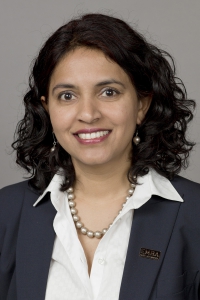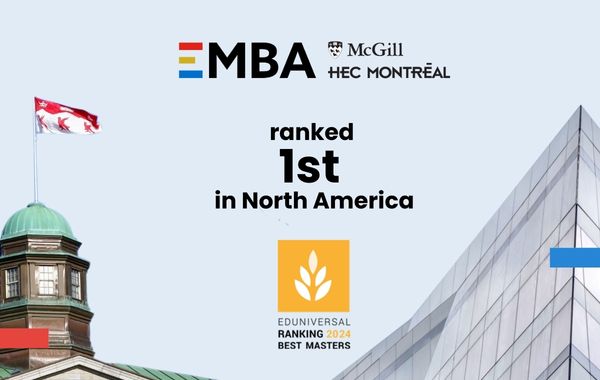
A major immigration reform is being prepared in Quebec. This reform will lead to a major review of the Quebec immigration law, the Quebec immigration and interculturalism model, how Quebec selects, welcomes and integrates immigrants. Therefore, extensive consultations began in January 2015 under Kathleen Weil’s watch, the Minister of Immigration.
The timing of these consultations was perfect for Indu Krishnamurthy, a recent graduate of the EMBA McGill-HEC Montréal, and Project Coordinator at ACEM (the Association of Community Loan of Montreal). Indeed, Indu’s final EMBA paper, completed in December 2014, focused on the possible use of microcredit as a tool for inclusion of professional immigrants in Quebec and Canada.
Having successfully completed the nine modules of the program, Indu, like all EMBA McGill-HEC Montréal participants began her final work. She chose a suitable and useful subject for her organization and for her, and spent nearly four months working on its research and redaction. The EMBA assigned her a supervisor, Luciano Barin Cruz, Associate Professor of Management at HEC Montréal, who gave her advices on the documentation to consult, the data gathering and analysis and the possible conclusions to draw.
After conducting several interviews with immigrants and have other fill out a survey, Indu Krishnamurthy analyzed the data collected in the light of her research question and observed the possible use of microcredit as a tool for personal, educational and institutional inclusion for professional immigrants in Canada.
The results of her paper show that immigrants must be able to use their abilities to their full potential in their adoptive society to limit the negative impact of deskilling on society and the Canadian economy. It is for this purpose that microcredit is an inclusion tool, because it allows immigrants to start the process of recognition of their professional skills faster.
One of the paper’s proposition is to submit the results of the study in order to help renew the federal pilot research project of loans for immigrants’ professional skills recognition. This proposal has somehow already taken shape because, based on research and the results of the work of Indu, ACEM made a submission as part of the consultation on the reform of the Immigration law entitled “Towards a Quebec policy on immigration, diversity and inclusion” which emphasizes the importance of microcredit.
Other proposition were addressed directly to the federal and provincial governments regarding their policy on immigration. Among other things, Indu recommended that the government be more transparent and thus, inform immigrants about the difficulties they could potentially face in the Canadian labor market. Ideally, the government should recruit mid-level professional immigrants who wouldn’t compete against young Canadian university graduates in the labour market. Indu also proposed the establishment of a mentoring program to help create new professional networks for immigrants in the country.
Indu Krishnamurthy’s final paper is an example of the scope and impact of final papers of EMBA McGill-HEC Montréal graduates, it had a high impact potential for her organization but also for the community.



